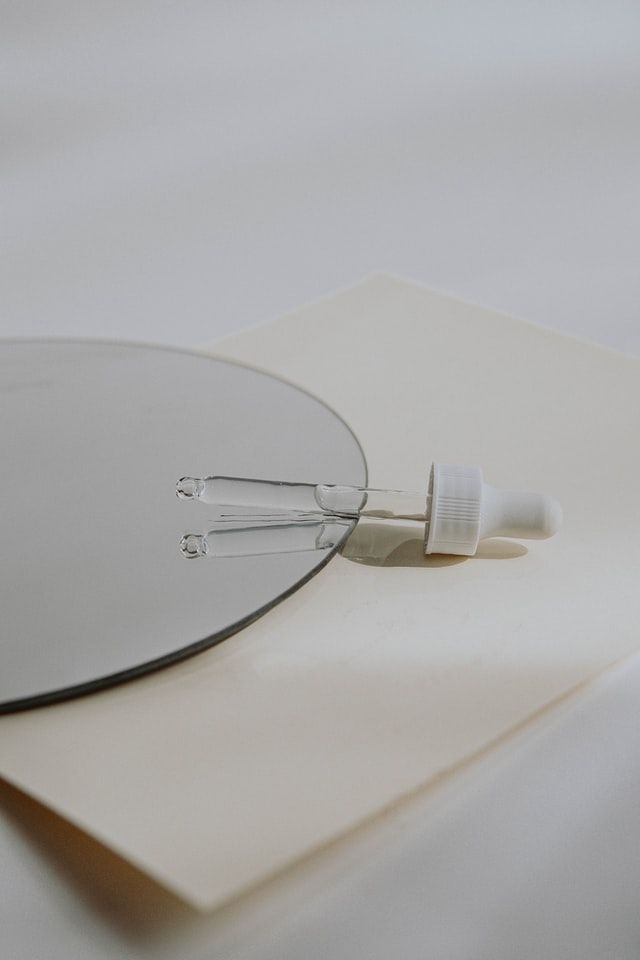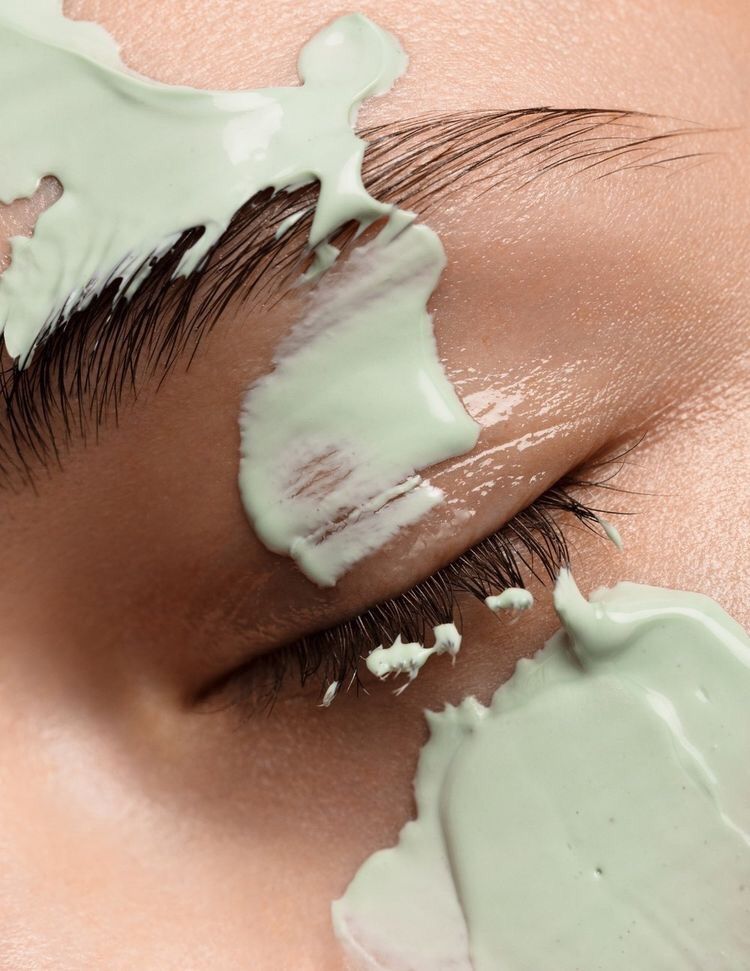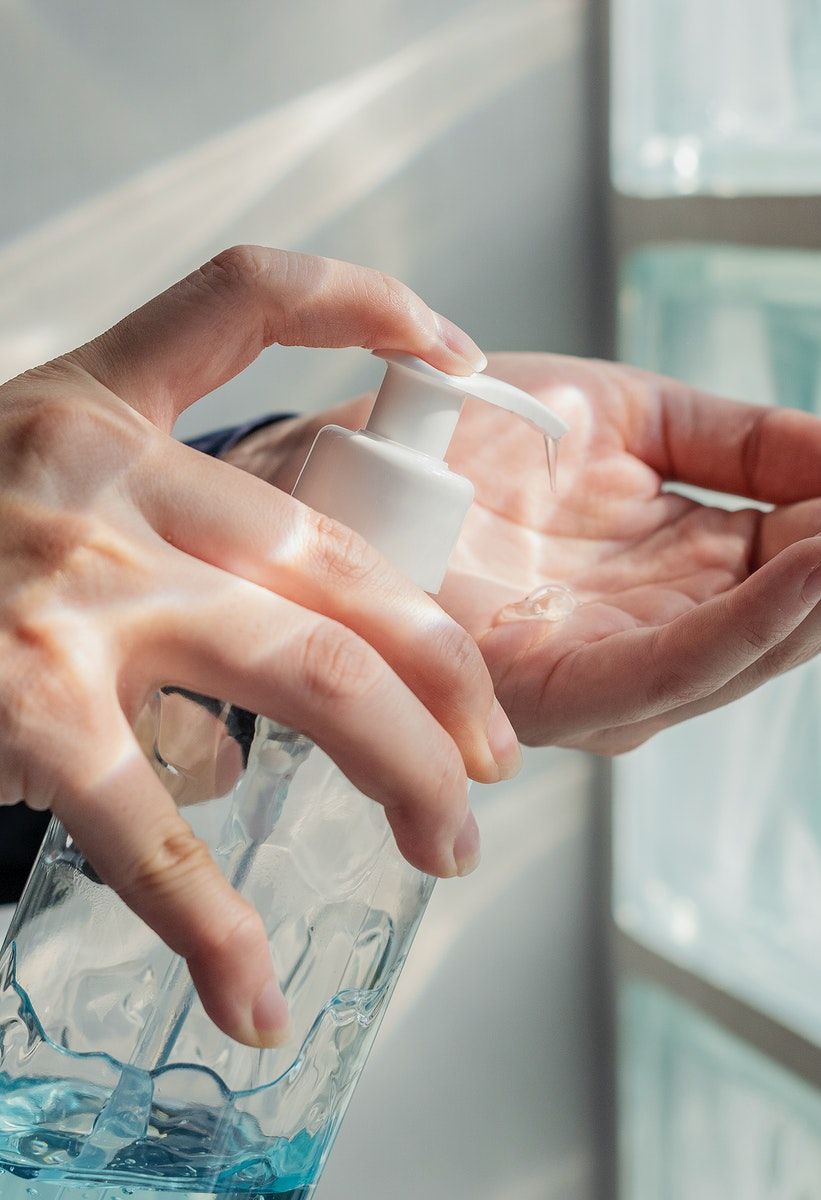I've been receiving messages lately on how to layer my skincare products, especially for the brand The Ordinary. They want to try a new skincare routine, but it's quite confusing which product to use first. So, here are my tips on what comes first and last.
 |
| Photo from: https://pin.it/1H8d1vG |
There are various techniques, routines, and processes for applying skincare depending on who you follow. Like, the Korean 10-step skincare routine starts with an oil cleanser, foam cleanser, exfoliant, toner, essence, serum or ampoule, facial oil, eye cream, moisturizer, and lastly, SPF or sleeping pack. Sometimes, your skin type also matters when creating a skincare routine. We have four different skin types: normal, dry, oily, and combination.
 |
| Photo from: https://pin.it/2alTmhx |
Oily Skin
- Your skin is likely to develop breakouts and acne.
- Your pores are enlarged.
- Your skin becomes greasy immediately, and you can feel an oily substance on your skin when you touch it.
Recommended layering
AM
- Gentle Cleanser - Gentle cleansing will help to eliminate greasy residue and unabsorbed skincare from the previous night's sleep, resulting in fewer clogged pores.
- Toner - After cleansing, use a toner that helps restore moisture and maintains the ideal pH level balance for your skin.
- Ampoule or Serum - I recommend using an antioxidant Vitamin C ampoule or serum that is light-weight, non-sticky, and quick-absorbing to brighten your skin and protect it from oxidative damage throughout the day.
- Eye Cream
- SPF - If you have oily skin, you may be wary of sunscreen since it feels thick and heavy. Use a Chemical sunscreen
PM
- Oil-based cleanser and Gel or Foam cleanser - The nighttime routine begins with a double cleanse, using an oil-based cleanser to remove makeup first and then a mild cleanser to completely refresh your skin.
- Toner - To keep your skin clear, balanced, and free of breakouts, try adding a moderate acidic toner to your routine to help eliminate sebum, remaining impurities, and refine the skin texture.
- Serum - To treat a skin problem like dehydration, acne, or hyperpigmentation, look for a concentrated serum or ampoule.
- Eye Cream
- Moisturizer - A good moisturizer is necessary for all skin types to seal in moisture and all of the benefits from the previous steps, as well as to keep the skin moisturized and fortify the skin barrier. However, because you have oily skin, you should use a lightweight or gel-type moisturizer.
Normal Skin
- Skin that is free of blemishes.
- The pores are small and barely visible.
- Even, clean, and smooth skin tone.
- A glowing complexion.
- Good blood circulation, neither overly greasy nor too dry skin.
- Recommended layering
Recommended layering
AM
- Cleanser - water-based
- Toner - Alcohol-free
- Moisturizer
- Sunscreen
PM
- Cleanser
- Toner
- Serum
- Night Moisturizer
Dry Skin
- Skin is tight, brittle, and lacks suppleness.
- The texture of your skin is rough, and your complexion appears dull and blotchy.
- Itching, scaling, and flaking are all possible side effects.
- Redness, discomfort, and infection are common.
- Pores that are hardly visible
- Chapping and cracking are also possible outcomes.
- It improves the appearance of fine lines and wrinkles.
Recommended layering
- Cleanser - Choose a cleanser that will remove dirt and oil without irritating the skin's outer layer.
- Toner - Alcohol is a common element in toners, which dries up the skin. Look for an alcohol-free toner with active components that will enhance your skin's pH balance.
- Ampoules or Serum - Focus on hydration with a pure hyaluronic acid serum.
- Moisturizer - A good moisturizer will lock in the benefits of a serum. Use a moisturizer daily that’s specifically designed for the face. Facial moisturizer needs to be really nourishing and hydrating, but avoid products that might clog your pores. It’s a safe bet to look for "noncomedogenic" on the label.
- Sunscreen
Combination skin
- Skin that is oily around the chin, nose, and forehead.
- Acne is more common on the chin, nose, and forehead.
- The skin around the mouth, eyes, and cheeks might be dry or normal.
- Pores on the chin, nose, and forehead are enlarged.
- Individuals with combination skin require varied skincare regimens that address their various skin regions and problems.
Before I get pregnant I used to have a normal skin type, now because of hormones, my skin type changed to the combination. I get acne in my first trimester and third trimester around my lower chin and oily around my nose and forehead. So, my skincare routine also changed, I used a facial scrub first to remove all the impurities and dirt then a gentle cleanser. Next is an alcohol-free toner; a serum that is a high concentrate of hyaluronic acid and my other serum for my acne marks niacinamide and lastly the azelaic acid suspension. That’s how simple and basic my skincare layering is at the moment due to my pregnancy I need to be careful about what I apply to my skin.
 |
| Photo from: https://pin.it/2XGag08 |
 |
| Photo from: https://pin.it/6oCij3J |
 |
| Photo from: https://pin.it/65nePnH |
Furthermore, when it comes to face creams, the usual guideline is to start with the lightest products first, and serums have the thinnest compositions that absorb the fastest. And that’s it loves on how to layer your skincare products. It’s okay to spend extra on other skincare products but having the simplest and minimal routine is much better so that our skin will not be loaded with a lot of products, our skin needs to produce its natural components such as glycosaminoglycan (which is known for hyaluronic ); collagen and many more. I believe that if we keep adding a lot of skincare ingredients into our skin, our skin will slowly not produce these natural beauty components, and we will just keep depending on skincare products. Plus, having a minimal routine will save us a lot of money.
0 comments